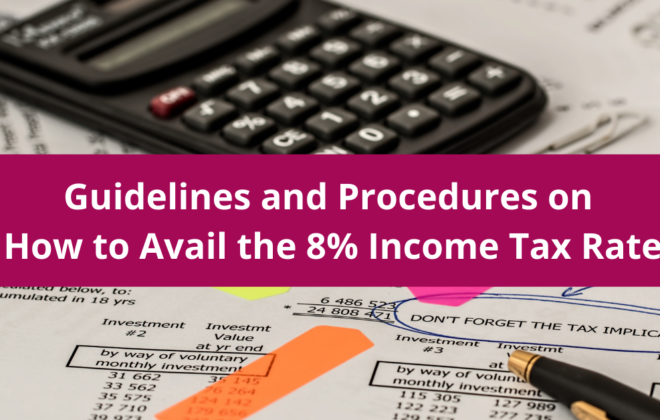What are the De Minimis Benefits Allowed Under the TRAIN Law?
‘De minimis benefits’ is a term every employee would love to hear from their employer. If you are an employee receiving supplemental compensation, you must be very happy because that is tax-free.
Meanwhile, employers can consider this as part of the company’s salaries and wages, which will help lower their corporate income tax.
For BIR compliance purposes, employers just have to provide all supporting documents, such as official receipts, approved travel authorities, etc
What is a De Minimis Benefit?
A De Minimis Benefit is an extra perk given to employees on top of their regular compensation, which is relatively small in value, e.g. meal or travel allowance, share in employees’ SSS or Pag-ibig premium contribution, etc.
Companies give these added benefits to recognize hardworking employees and improve goodwill and workplace efficiency.
Employers should know that de minimis benefit is different from fringe benefit. The former is small in value and tax-exempt while the latter is bigger in amount and taxable, such as housing or vehicle assistance programs, etc.
What is considered De Minimis Benefits under the TRAIN Law?
- Cash conversion of private employees’ unused vacation leave credits up to 10 days during the year;
- Cash conversion of government employees’ unused vacation and sick leave credits;
- Uniform or clothing allowance not exceeding P6,000.00 annually;
- Employee’s medical allowance not exceeding P10,000.00 every year for healthcare and medical needs, annual medical check-up, routine consultations, and maternity assistance;
- Medical allowance of the employee’s dependent not exceeding P3,000.00 per year;
- Rice subsidy of P2,000.00 or one (1) sack of rice per month;
- Laundry allowance up to P300.00 per month;
- Service Awards for a length of service given in the form of a tangible personal property worth up to P10,000.00 given under established company policies;
- Cash gift during Christmas or anniversary celebration not exceeding P5,000.00 per employee, per annum;
- Meal allowance not exceeding 25% of the basic minimum wage for employees who render overtime work or are assigned to the night shift;
- Benefits from the collective bargaining agreement and the productivity incentive scheme should not exceed P10,000.00 per employee.
How does the TRAIN law affect the employees’ taxes?
Employers are reminded that all other benefits not listed above are subject to compensation income tax.
Moreover, the total de minimis benefits allowed per employee is up to ninety thousand pesos (P90,000.00). If the full benefits exceed the ceiling amount, the excess is taxable and forms part of the compensation income if the recipient is a rank-and-file employee.
However, for a supervisory and managerial position, the excess de minimis benefits are subject to a Fringe Benefits Tax, which is computed separately from the Compensation Income Tax.
Ask a Payroll and Tax Professional to help you.
Do you find this topic confusing? We’d be happy to assist you with your payroll. We will ensure that we correctly classify your employees’ income items and withhold the taxes accordingly.
Computing your employees’ income and taxes accurately gives you peace of mind knowing that the employees are happy and the company is far from being penalized for erroneous tax payments.
Just message us at info@djkaaccounting.com to learn more about our tax compliance and payroll services.
Recent Posts
- How to Process the Sworn Declaration Required by BIR for Electronic Marketplace Sellers
- Understanding Tax Compliance for e-Marketplace Businesses
- Who Needs to Submit GIS to the SEC?
- Understanding these Financial Ratios for Business Decision-Making Purposes
- What you Should Know about the Ease of Paying Taxes Act





